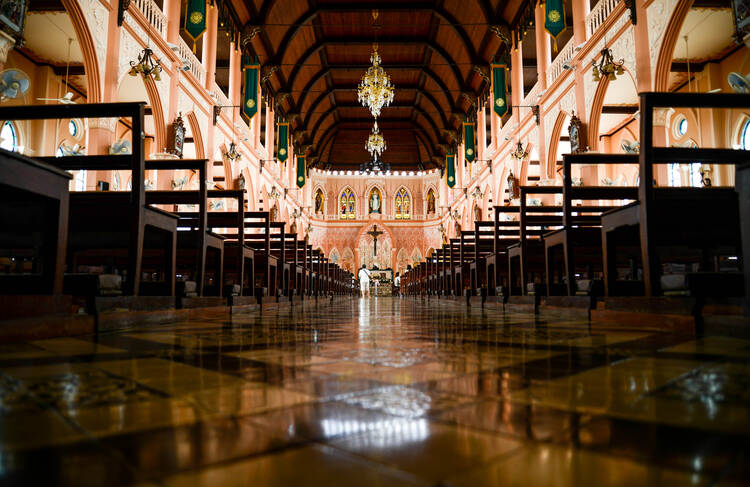When Pope Francis visited Asia earlier this year, the Philippines, the third-largest Catholic nation in the world and the only majority Catholic nation in the region, received most of his attention. Also on his itinerary was Sri Lanka, which was receiving a pontiff for the first time in 20 years as it emerges from the shadow of a decades-long civil war. And in the background of the trip was China, not on the itinerary but on everyone’s mind, as both the Vatican and the Chinese government dance around the idea of better ties.
So it was barely a flicker of a mention that drew attention to Thailand, not exactly a bastion of Catholicism. But 2015 is shaping up as an important year for the church in Thailand, as it celebrates 350 years in the country and the appointment of a new Thai cardinal.
European colonization brought Catholicism to Asian countries and territories where its presence remains strong, such as the Philippines, tiny East Timor and Singapore, but Thailand has never been colonized. The faith made its way into the country more organically.
The church is pegging its anniversary on the first Synod in Ayutthaya, then the capital of the Kingdom of Siam, about 40 miles north of the present-day capital Bangkok, but Catholicism likely first arrived with French or Portuguese missionaries about 100 years earlier. The Seminary of St. Joseph was also established there in 1665, and St. Joseph’s Church still stands on the site.
Despite its long history, Catholicism never appealed to a large number of Thais. Today, the country is best known for Buddhism, and over 90 percent of Thais identify themselves as Buddhist. An upsurge in Muslim conversions, along with Islamic separatist violence in southern Thailand, has also created a stronger identification of Thailand with Islam. And yet Catholicism retains a special place in urban Thai society.
King Bhumibol Adulyadej, Thailand’s beloved monarch, attended Bangkok’s Mater Dei School for a short period of time. Today, Catholic education remains a popular option for wealthy Thais, even if they are not adherents.
Numbering in the hundreds of thousands in a nation of 67 million, the church in Thailand has itself adopted a posture similar to that of its surroundings. Thailand has always been religiously tolerant, and the Catholic Church seeks not to steal sheep through aggressive evangelization but to encourage a spiritual life rather than secularism.
“The main obstacle for us is secularism,” said Archbishop Francis Xavier Kriengsak Kovitvanit in an interview with the English-language newspaper The Bangkok Post in January. (He will be installed as a cardinal, Thailand’s second-ever, on Feb. 14.) “It doesn’t mean that we are trying to oppose new inventions or technology, but it is not the same as God. For example, a computer makes our lives a lot easier, but if one person relies on it too much and it becomes an addiction, that is not good.
“Catholics believe in the value of life and we love to share what we think is useful for others,” the archbishop said. “I believe people who have faith in their own religion have their own practices. We are not trying to compete or convert anyone to what we believe. We are aiming to work together with people of different religions and share our ideas of what we believe in.”
The church may also play another role in Thailand, that of mediator in a political struggle. Massive protests in Bangkok have been staged by the United Front for Democracy Against Dictatorship, known as the Red Shirts, supporters of former Prime Minister Thaksin Shinawatra, and the People’s Alliance for Democracy, the Yellow Shirts, who are opponents first of Shinawatra and then of his sister, Yingluck Shinawatra.
Both of their reigns as prime minister ended in military coups; the most recent was a bloodless affair in May 2014. While keen to stay out of politics formally, the church and other religious leaders, both Christian and non-Christian, are seen as relatively impartial, and their measured presence could help set the stage for future elections and a return to democracy, although no date has been set.








